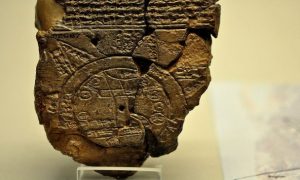Traveling down under will soon be a reality again—the long-awaited Australia border opening is finally here. The government announced on Monday that the country’s border restrictions, which have been in place since March 2020, will be lifted on February 21, reopening Australia to vaccinated foreign visitors.
“The condition is: You must be double vaccinated to come to Australia,” Prime Minister Scott Morrison said in a press conference on Monday. “That is the rule. Everyone is expected to abide by it.”
The news comes just four days after neighboring New Zealand—with which Australia has a travel bubble—announced its five-step plan to open to foreign travelers by July. Australia had planned to reopen to travelers as early as last December, but officials delayed due to the quick-spreading Omicron variant.
Inbound visitors to Australia will need to present proof of being fully vaccinated upon check-in to their flights and may be asked to show the evidence again to border officials upon entry. The vaccines must be from an approved list, which includes AstraZeneca, Janssen, Pfizer, Moderna, and Sinovac. Paper and digital certificates issued by government authorities or accredited vaccination providers are accepted and must have a name matching the one on the passport, a date of birth or passport number, the vaccine brand, and dates the dosages were completed. Additionally, they must be in English, or accompanied by a certified translation.
In addition to vaccination status, foreign visitors must also have a negative pre-departure test, either a nucleic acid amplification (NAA) test, which includes polymerase chain reaction (PCR) tests performed within three days of departure by a lab, or a rapid antigen test (RAT) performed within 24 hours by a medical practitioner.
The Australian Department of Health also specifies that masks must be worn for the duration of the flight and says to put on a fresh one every four hours or if and when it gets wet. “If you don’t agree to wear a mask, you will not be allowed to check in or board the aircraft,” the site says.
While the news seemed to have come suddenly, the Australia border opening is actually the final phase of the country’s long enacted plan that said international borders would be reopened when 80 percent of its population 16 and older received two doses of COVID-19 vaccine. As of Tuesday, more than 19 million people over the age of 16 are fully vaccinated, accounting for 93.8 percent of the population (9.2 million of those fully vaccinated have received a booster shot).
Travel within Australia
Once on the ground in Australia, there may be additional restrictions depending on the state or territory, but that could be changing, says Amanda Fisher of Australian travel company Alquemie. “We still don’t have all the facts, but we do know travel into New South Wales, Queensland, and Victoria will be very easy,” she says, suggesting visitors check requirements for individual states.
For example, New South Wales (where Sydney is located) and Victoria (where Melbourne is) currently require another test within 24 hours of arrival with self-isolation until a negative result is received. “It’s a chance to rest up after the long flight and a good reason to book a room with a view,” Fisher says.
Traveling between states should also be seamless without additional testing required, according to Fisher, with one major exception at the moment: Western Australia, where vaccinated international travelers need to quarantine for 14 days upon arrival—with seven days in a hotel quarantine and another seven days in self-quarantine.
“Some states are completely open, others are opening gradually,” Denis Page of Asia-Pacific travel company Longitude 80 says, recommending foreign visitors use an Aussie-focused travel agent to help navigate the constantly changing regulations. “It’s just a matter of a travel specialist keeping on top of the latest regulations and helping travelers to get on a safe holiday without worrying about details.”
Visitors may also run into other COVID measures, depending on the area. “Mask wearing and COVID check-in is required in some settings, and proof of vaccination may also be required in cafes and restaurants in some states,” says Brooke Garnett Chalk of Maya Maya Travel. “[But ] there are very few remaining COVID restrictions to daily life in most of Australia.”
While the news comes just two weeks before the opening date, an overwhelming influx of travel is expected. “Not only is there a lot of pent up demand from international travelers, but Australians themselves are great travelers and many of us have locked in domestic travel this year,” Fisher says. “For those hoping to visit Australia this year, book soon!”







































